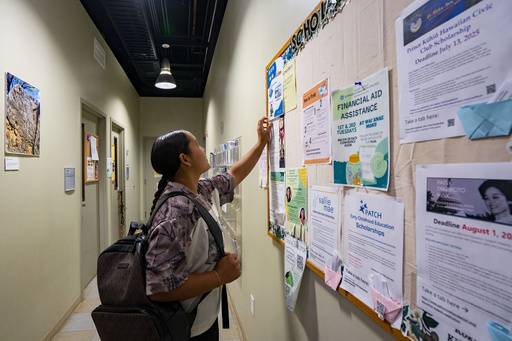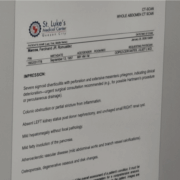Most US teens—girls especially—see college as key to jobs, life skills

PHOENIX—Most American teenagers say it is important to them to graduate from college, with girls especially describing it as a key step for accomplishing their life goals, according to a new poll.
Teenagers also generally are more upbeat than adults on college despite concerns about tuition costs, soaring student loan debt and the politicization of many issues in higher education.
Overall, about 6 in 10 teens say it’s “extremely” or “very” important to them to graduate from college, according to the survey from The Associated Press-NORC Center for Public Affairs Research, which was conducted this spring among teenagers between the ages of 13 and 17. That compares with about 4 in 10 adults who said the same in a UChicago Harris/AP-NORC poll from 2022.
Home ownership
The survey also found that many teens think it will be harder for them to achieve major life milestones—like owning a home, raising a family or reaching a good standard of living—than it was for their parents.
For Ry-n Uyeda, 17, the biggest concern about college is the prospect of being away from her home in Waianae, Hawaii. Uyeda is already taking college-level courses in high school and hopes to play softball at a university on the West Coast.
Uyeda said she wants to develop time management skills and endurance to handle the pressures of being a student-athlete. But she hopes the college experience does not change who she is.
“I want to remember where I came from and the values that I’ve learned from here,” said Uyeda, who attends Waianae High School. “Going to a new place with new people in a new environment, I just want to still be myself.”
Gender gap
Seven in 10 teenage girls in the survey said it was at least “very” important to them to graduate from college, compared with 54 percent of teenage boys.
The disparity reflects a growing gender gap in college degree completion.
In 1995, young men and women were equally likely to hold a bachelor’s degree. Since then, a gap has emerged, with 47 percent of US women ages 25-34 completing a bachelor’s degree compared with 37 percent of men, according to a Pew Research Center analysis of census data.
Teens raised in households with higher incomes and parents who went to college themselves also are more likely to view higher education as important.

















